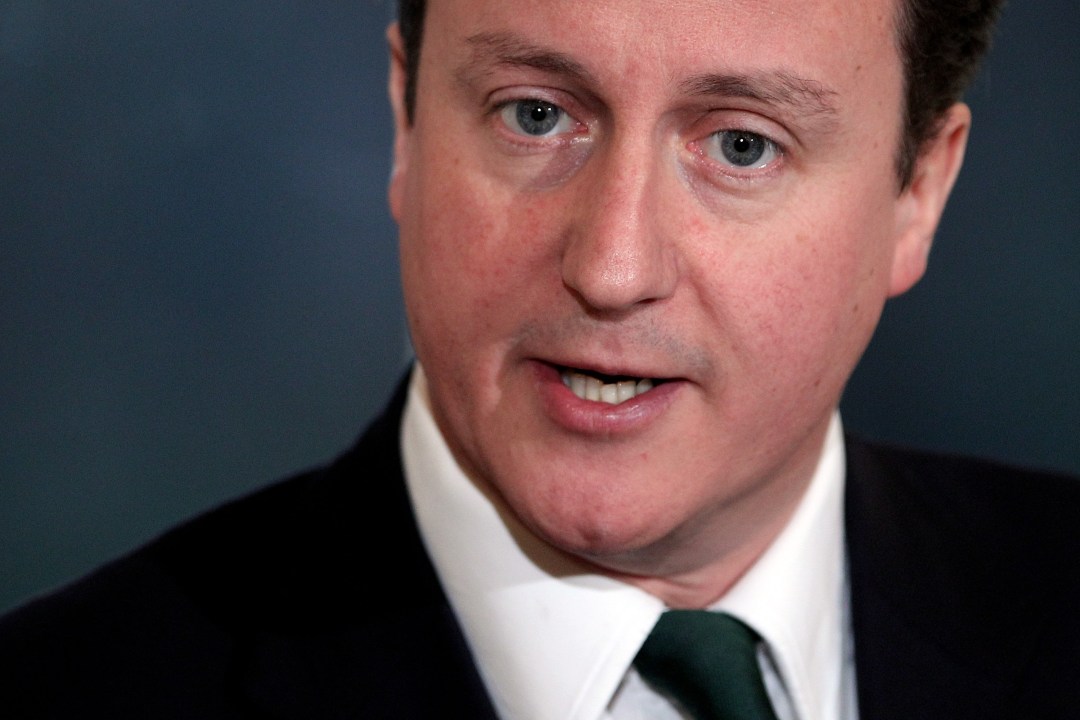 I delivered the Keith Joseph lecture last night, entitled Winning Is Not Enough. My point: that the Tories have adopted so many Labour policies out of tactical considerations that they are in danger of getting to office only to find they have signed up to continuing Gordon Brown’s agenda. The problem is not so much Gordon Brown himself, but his misunderstanding of government and politics: it’s his ideas that are so dangerous. If those ideas survive with a blue rosette, they are no less dangerous. And if a Tory government adopts these ideas then that’s not change. It’s more of the same.
I delivered the Keith Joseph lecture last night, entitled Winning Is Not Enough. My point: that the Tories have adopted so many Labour policies out of tactical considerations that they are in danger of getting to office only to find they have signed up to continuing Gordon Brown’s agenda. The problem is not so much Gordon Brown himself, but his misunderstanding of government and politics: it’s his ideas that are so dangerous. If those ideas survive with a blue rosette, they are no less dangerous. And if a Tory government adopts these ideas then that’s not change. It’s more of the same.
By the time you add up all the concessions Cameron has felt it necessary to make to this amazingly unpopular and unsuccessful Prime Minister (NHS spending pledge, the idea that care = cash, 50p tax, Lord Stern, DFID spending pledge, Climate Change Act, inflation targeting), they will tie his hands in office. And those of us who vigorously oppose the ideas coming from Gordon Brown can hardly be expected to applaud them if endorsed under duress by Cameron.
The full text of the lecture is here. With a nod to Danny Finkelstein, Guido describes it as “Finking is not enough” – and The Fink has done me the honour of a Fisk (here). He spots what he regards as a contradiction. Now, I’m a great fan of The Fink, and he and I sparred over cuts last October – which I thought necessary and he did not. Yet again, we disagree.
His point: that in my lecture I say it is the greatest deception in politics is to say “we’ll just copy their policies now, dress in their clothes for a bit, and do the good stuff later on.” The radicalism, I say, “tends never to arrive”. Fink ignores the word “tends,” and then points to my case about how rocket-boosters were fitted on the Thatcher revolution after the Falklands. Fink spies a contradiction. How can I call for Cameron to be radical straight away, and then also claim that the Thatcherite rocket boosters came later?
I doubt even Danny is suggesting that Thatcher adopted a modernisers’ strategy (ie, camouflaged herself in enemy clothing in a bait-and-switch tactic). She had been plotting her agenda since being elected leader in 1975. (read John Hoskyns’ Just In Time for the definitive account). The Geoffrey Howe budget, the 364 economists writing in protest – all the rest of it. My point is that it was electorally shaky: it was by no means clear, before the Falklands and the Labour/SDP split, that she’d win a second term. The electorate almost spat out Thatcher’s medicine. But then, after the Falklands, it became clear that this was a woman whose boldness seemed to pay off. Her opposition crumbled, and she went on to conquer even more territory: privatisation, Scargill etc. But she was radical from the offset, as we were reminded when some papers from 1979 were released.
Then, Danny says that the Tories waited until 1988 to cut the top rate of tax to 40p. So were they waiting nine years before delivering tax cuts? Hardly. I’m sure Danny doesn’t need me to tell him that the 1979 budget cut the top rate from 83% to 60% and the basic rate from 33% to 30%.
Finally, Danny takes me to task for my point on health spending. I say Cameron is copying Brown’s logic when he says “I care about the NHS so I will protect its budget”. My point is that this focus on budgets – the input – is Labour’s root error. The Tories should find different ways about caring about health, other than saying “look, we won’t cut its budget.” In failing to challenge Brown’s premise, they are unwittingly locked into his argument. And if care means cash, then how will they explain defence cuts?
Danny points out that Thatcher increased NHS spending – and, indeed, she did. But it was the bare minimum – Norman Fowler would go to the star chamber and come away with nothing. John Moore was regularly hauled over the coals about NHS spending. But 1980s history doesn’t teach us much.
My point is this: the UK is in a fiscal black hole now because Brown has jacked up spending as if this were a goal in itself. If the Tories repeat this logic in the NHS, they are becoming a slave to his ideas. I finished my lecture by saying I don’t regard Cameron as a sell-out. In fact, of all the MPs in the House of Commons, I can think of no one better to govern Britain after the election. He’s brilliant when his back is against the wall – which it will be, from day one. The way he halted the 2007 election – with bold proposals for Swedish-style schools and Wisconsin-style welfare reform – shows that he does have inherent radicalism.
But I also fear that the modernisers’ agenda – minimise the difference with Labour to get into power – has no relevance now that Labour’s agenda has bankrupted the country. Tony Blair apparently says nowadays that his biggest regret in public sector reform was that “I did not listen to myself more.” I hope Cameron will listen to the better angels of his nature. Obama has shown how impatient the electorate are for results, and how quickly political capital perishes. Cameron would be well advised to use his quickly, and wisely.








Comments